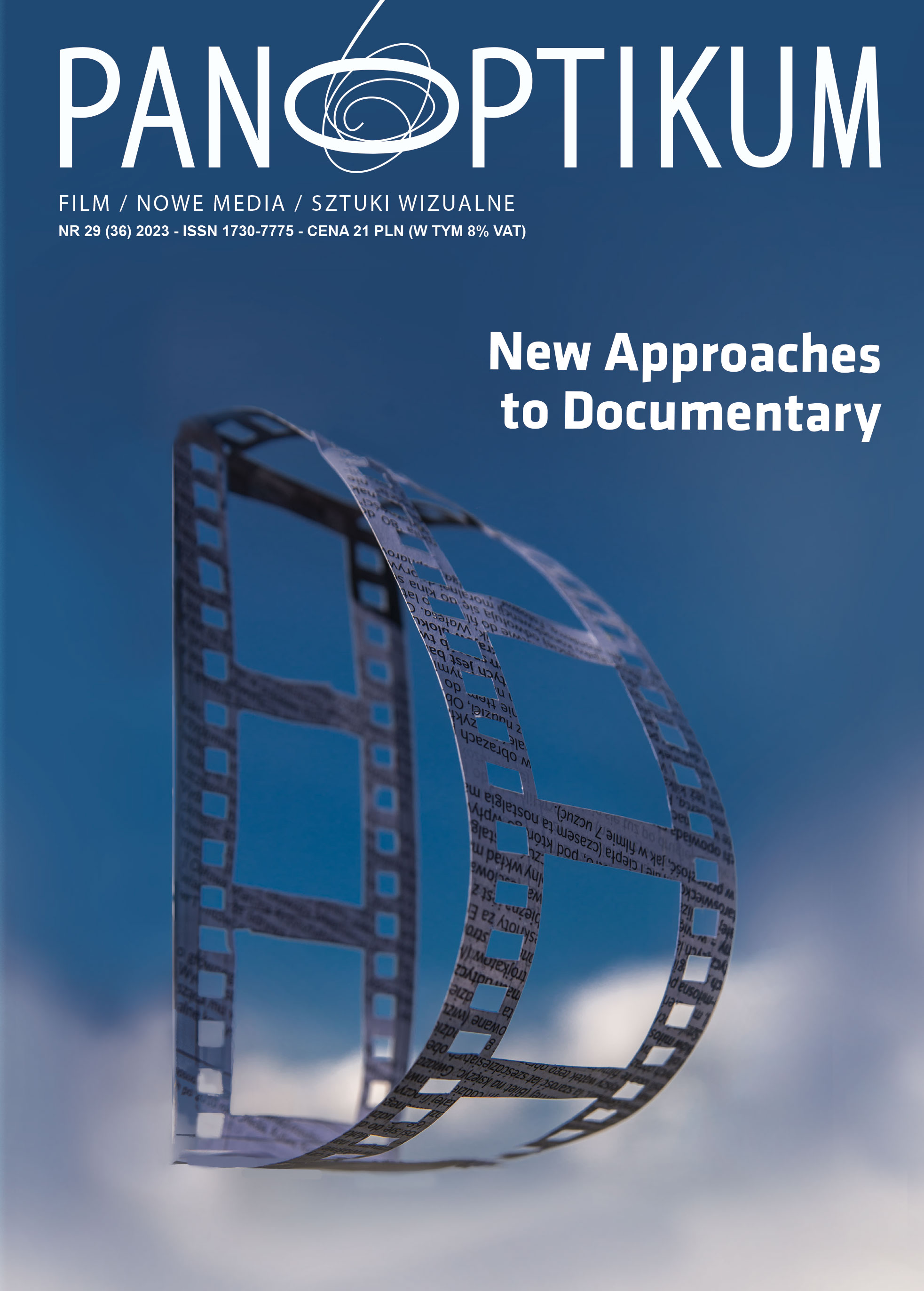A New Paradigm for the Genocidal Interview: The Documentary Duel and the Question of Collaboration
DOI:
https://doi.org/10.26881/pan.2023.29.05Słowa kluczowe:
Perpetrator Era, perpetrator cinema, Cambodian autogenocide, genocidal interview, documentary duel, moral resentment, perpetration, collaborationAbstrakt
A global boom in mainly documentary films interviewing perpetrators recognizes the current shift from the era of the witness to that of the perpetrator. Post Khmer-Rouge Cambodian cinema (1989–present) is a unique and highly important case of perpetrator cinema. It proposes for the first time in cinema direct confrontation between first-generation survivor-filmmakers and perpetrators, a new form of genocidal interview: the documentary duel. Enabled both by the intimate horror of the autogenocide and the Khmer Rouge tribunal (the ECCC), dueling with high-ranking perpetrators shifts power relations between the two. In contrast, dueling with low-ranking perpetrators and collaborators, never to be tried, does not generate this much-desired shift. Thus, Cambodian collaboration revealed through cinema stresses the immense importance of the law in promoting familial-social-cultural processes of acknowledgement of accountability. Further, Cambodian duel documentaries constitute the ethics of “moral resentment” (my term), while objecting to and disrupting the political view that reconciliation is the only legitimate response to the atrocious past.
Downloads
Bibliografia
Améry, J. (1980). At the Mind’s Limits: Contemplations by a Survivor on Auschwitz and Its Realities, trans. S. Rosenfeld and S. P. Rosenfeld. Reprint, Bloomington: Indiana University Press, 1966.
Chandler, D. P. (1996). Songs at the Edge of the Forest: Perceptions of Order in Three Cambodian Texts, in: Facing the Cambodian Past: Selected Essays, 1971–1994. Chiang Mai, Thailand: Silkworm Books.
Cohen, S. (2001). States of Denial: Knowing about Atrocities and Suffering. Cambridge, UK: Polity Press.
Derrida, J. (2001). On Forgiveness, in: On Cosmopolitanism and Forgiveness, trans. M. Dooley and M. Hughes. New York: Routledge.
Eaglestone, R. (2017) The Broken Voice: Reading Post-Holocaust Literature. Oxford: Oxford University Press.
Felman, S. (2002). The Juridical Unconscious: Trials and Trauma in the Twentieth Century. Cambridge, MA: Harvard University Press.
Morag, R. (2020a). Perpetrator Cinema. Confronting Genocide in Cambodian Documentary. New York: Columbia University Press.
Morag, R. (2020b) Gendered Genocide: New Cambodian Cinema and the Case of Forced Marriage and Rape, “Camera Obscura”, Vol. 103, No. 35.1.
Nichols, B. (2008). Documentary Reenactment and the Fantasmatic Subject, “Critical Inquiry,” Vol. 35, No. 1.
Nietzsche, F. W. (2009). On the Genealogy of Morals. 1st ed. trans. D. Smith. New York: Oxford University Press, 1886.
Panh, R. and Bataille, C. (2013). The Elimination: A Survivor of the Khmer Rouge Confronts His Past and the Commandant of the Killing Fields, trans. J. Cullen. New York: Other Press.
Scheler, M. (2010). Ressentiment, trans. L. B. Coser and W. W. Holdheim. Reprint, Milwaukee, WI: Marquette University Press, 1914.
Staub, E. (1992). The Roots of Evil: The Origins of Genocide and Other Group Violence. Cambridge: Cambridge University Press.
Suleiman, S. R. (2002). The 1.5 Generation: Thinking About Child Survivors and the Holocaust, “American Imago”, Vol. 59, No. 3.

 Uniwersyteckie Czasopisma Naukowe
Uniwersyteckie Czasopisma Naukowe









